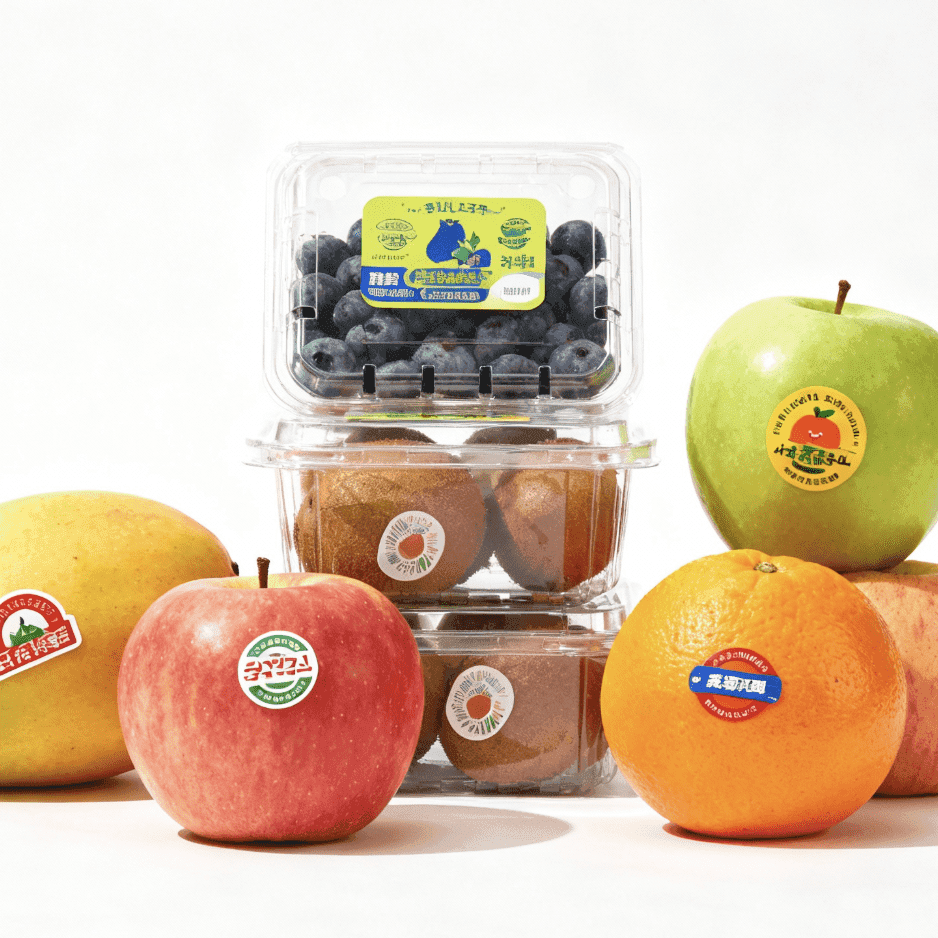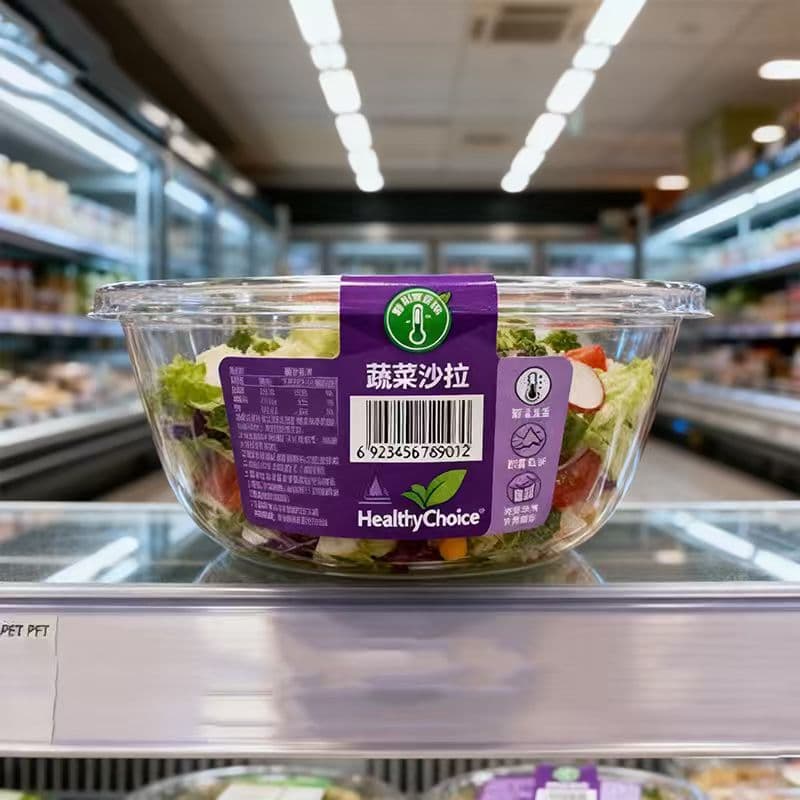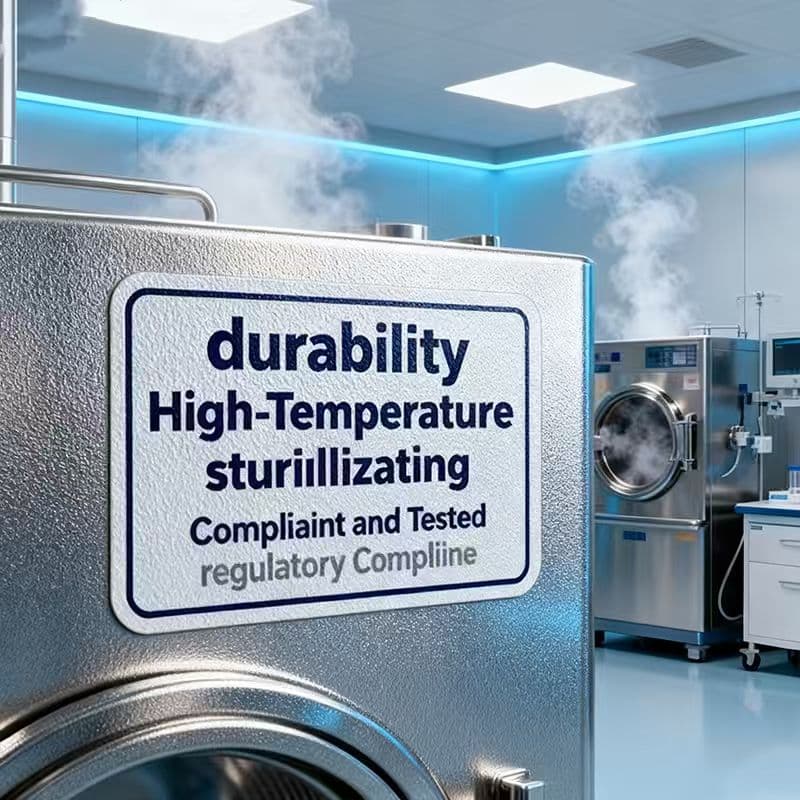
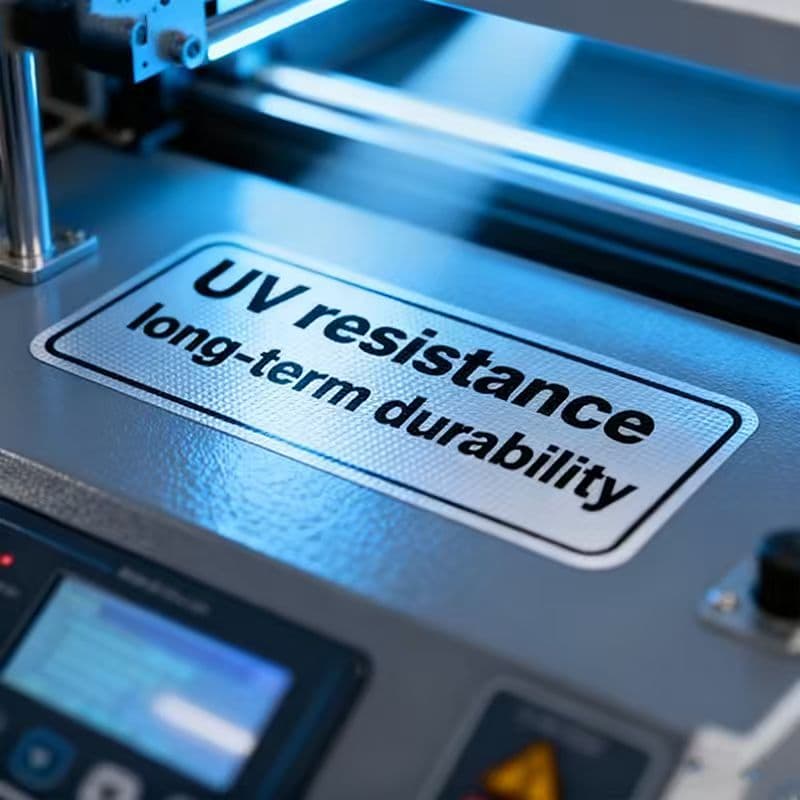
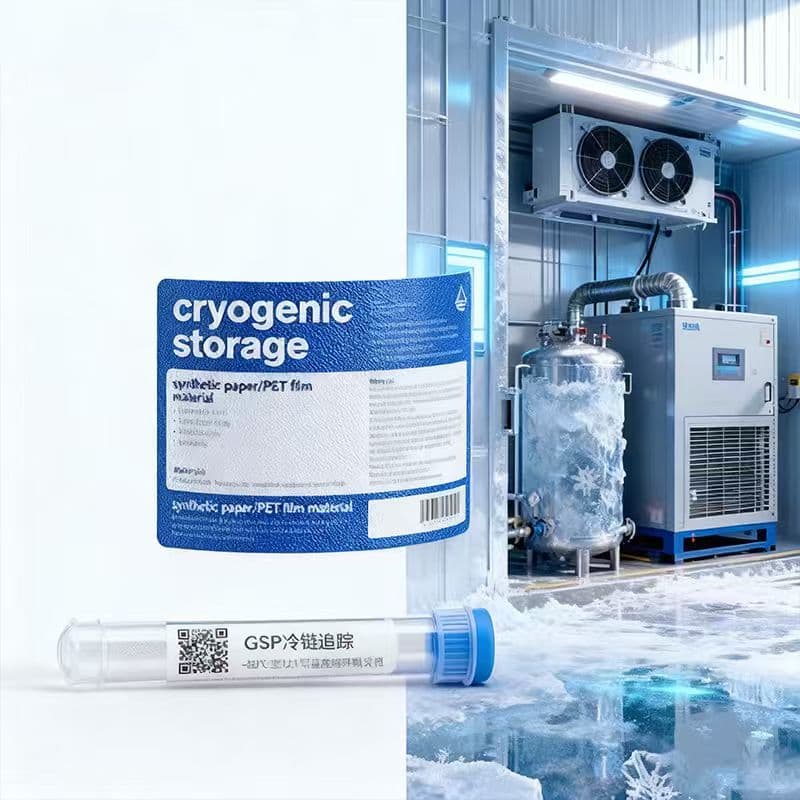
Compliant and Tested Labeling
The label materials used in compliant and tested labeling typically adopt high-strength PP, PET, or synthetic paper, offering excellent adhesion to metal, glass, PVC, and composite surfaces. They provide outstanding plasticity, chemical resistance, and thermal endurance, capable of withstanding multiple high-temperature sterilization and freeze-thaw cycles without delamination or fading.
Compliant and tested labels are also known as industrial compliance labels, certified safety labels, quality-assured labeling, test-verified labels, regulatory marking labels, and performance-tested adhesive labels. These labels are widely used in medical equipment, automotive parts, electronic components, laboratory containers, and chemical packaging that require long-term durability and certification traceability.
For compliant labeling applications, the main adhesive materials include synthetic paper or high-performance PET films combined with solvent-based or hot-melt pressure-sensitive adhesives. These adhesive systems are specifically engineered to maintain adhesion and legibility under challenging conditions such as autoclaving, UV exposure, and cryogenic storage.
Specifically, the synthetic paper used in compliant and tested labeling is composed of polyolefin resins blended with inorganic fillers, produced through precision extrusion and stretching technology. This results in a material that combines the durability of plastic with the printability of paper, providing superior resistance to tearing, moisture, and chemicals.
Interested in this product?
Get in touch for more information, pricing, or custom requirements.

